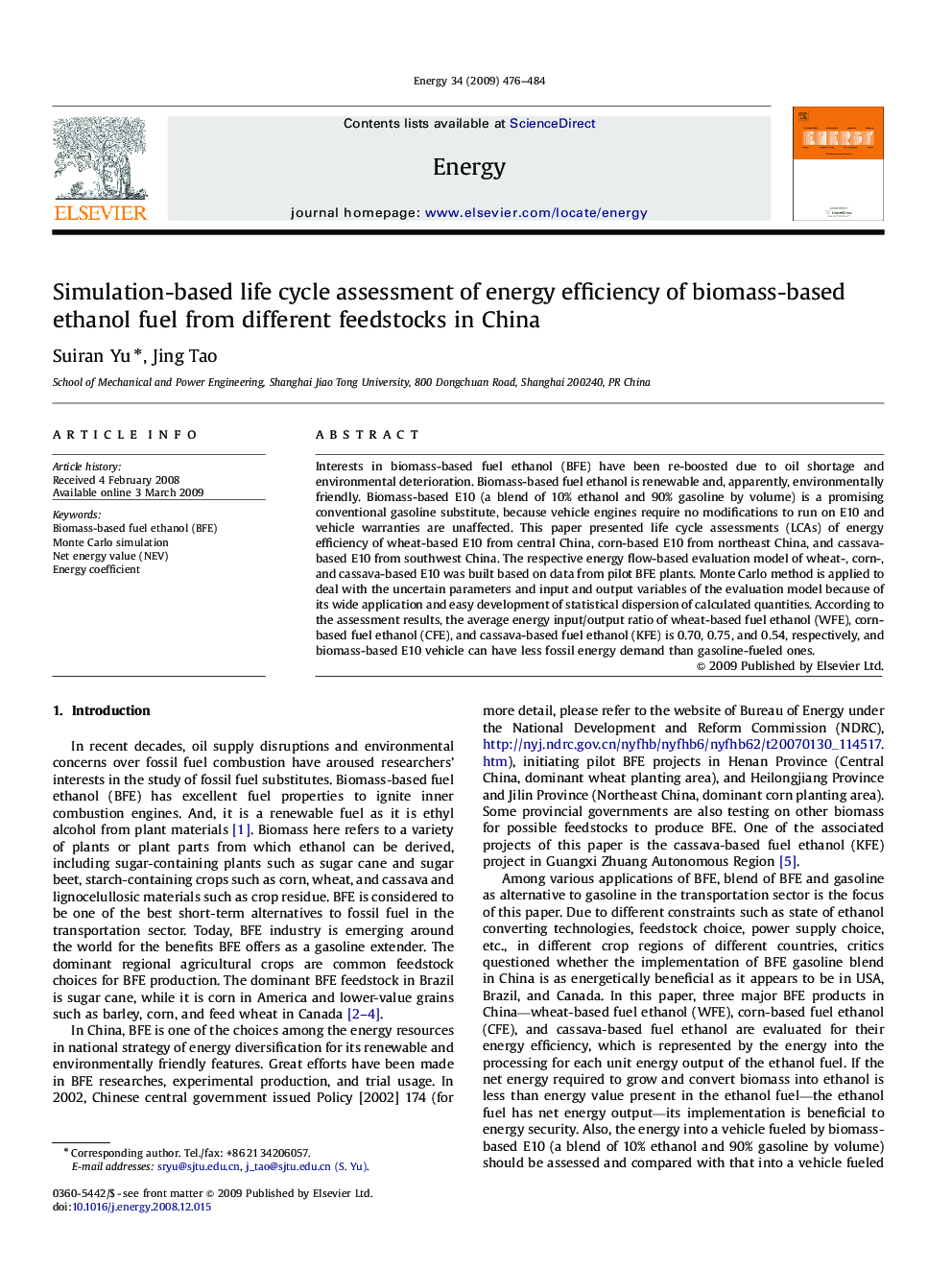| Article ID | Journal | Published Year | Pages | File Type |
|---|---|---|---|---|
| 1734815 | Energy | 2009 | 9 Pages |
Interests in biomass-based fuel ethanol (BFE) have been re-boosted due to oil shortage and environmental deterioration. Biomass-based fuel ethanol is renewable and, apparently, environmentally friendly. Biomass-based E10 (a blend of 10% ethanol and 90% gasoline by volume) is a promising conventional gasoline substitute, because vehicle engines require no modifications to run on E10 and vehicle warranties are unaffected. This paper presented life cycle assessments (LCAs) of energy efficiency of wheat-based E10 from central China, corn-based E10 from northeast China, and cassava-based E10 from southwest China. The respective energy flow-based evaluation model of wheat-, corn-, and cassava-based E10 was built based on data from pilot BFE plants. Monte Carlo method is applied to deal with the uncertain parameters and input and output variables of the evaluation model because of its wide application and easy development of statistical dispersion of calculated quantities. According to the assessment results, the average energy input/output ratio of wheat-based fuel ethanol (WFE), corn-based fuel ethanol (CFE), and cassava-based fuel ethanol (KFE) is 0.70, 0.75, and 0.54, respectively, and biomass-based E10 vehicle can have less fossil energy demand than gasoline-fueled ones.
